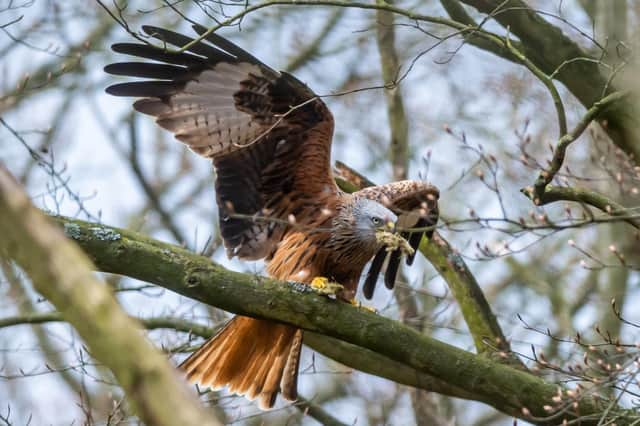Head of North York Moors National Park speaks out against raptor persecution as two red kites killed


Tom Hind, Chief Executive of the Helmsley-based park authority, said: “We were appalled to hear of further incidents of wildlife crime with at least two red kites being killed in the northern area of the park.
"It has been a joy to see these majestic birds return to the park in the last few years.
Advertisement
Hide AdAdvertisement
Hide Ad“There is no place for wildlife crime in the National Park, or for those who perpetrate it.
"The damage it does to the reputation of landowners, communities and the park is immeasurable.
"I sincerely hope that on-going investigations will lead to a prosecution.”
Writing in the park’s newsletter, Moors Messenger, Mr Hind said: “Reputation take years to build but can be destroyed in an instant.”
Advertisement
Hide AdAdvertisement
Hide AdMeanwhile the park has secured grant funding from Natural England for two major habitat restoration projects at three Forestry England sites at Cropton, Langdale and Harwood Dale.
Mr Hind said the project aims to see the return of boggy, species-rich habitats where sphagnum moss, heather and cotton grass thrive.
“In turn this will help our populations of golden plover, merlin and curlew. The first task is to raise the water table so that the ground is suitably wet and water-logged to support the community of plants," he said.
“This will be achieved by blocking erosion gullies and building ‘leaky dams’ that use natural materials to slow water drainage and help the formation of small pools.
Advertisement
Hide AdAdvertisement
Hide Ad“This project has been awarded £1.25m from the Climate Peatland Grant Scheme.”
Some £498,000 has been given by Natural England to improve the habitat for Atlantic salmon and freshwater pearl mussels in the Esk Valley near Whitby.
Mr Hind said the scheme would improve conditions that hinder fish migration and improve gravel spawning sites for salmon in the River Esk.
“In a triple triumph for the rivers of North Yorkshire, funding from the Species Recovery Programme has also been awarded to Yorkshire Wildlife Trust to help local populations of native, white-clawed cray fish and to York St John University to provide habitat for water voles, tansy beetles and great-crested newts along a stretch of the River Foss.”